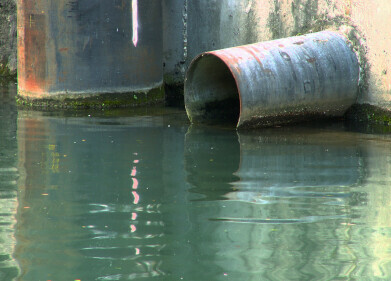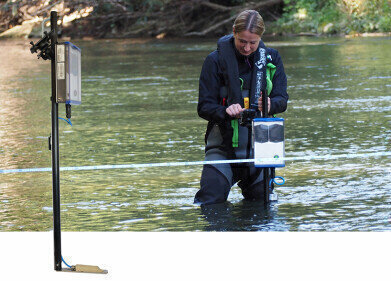River Water monitoring
Environment Agency extends natural flood management scheme - but will it help water quality?
Oct 06 2023
In recent years, natural flood management techniques have been championed as an approach that combats both flooding and surges whilst promoting biodiversity and improving water quality. The Environment Agency in the UK has been promoting this approach since 2017 by providing financial backing to businesses, communities, farmers and Local Authorities for cultivation projects. The pilot funded 60 projects, effectively storing approximately 1.6 million cubic meters of water, shielding 15,000 homes from flooding, and rejuvenating the environment by improving 610 kilometers of rivers, establishing 100 hectares of forests, and creating 4,000 hectares of habitat.
The Surrey-based Dorking Natural Flood Management Scheme stands out as a noteworthy venture under this initiative. Triggered by the overflowing Pipp Brook attributed to its steep terrains, this £300,000 project is an archetype of natural flood management in the South East. Collaboration between the Environment Agency and the Forestry Commission led to the restoration of the river channel to its natural course, forming a 'wet woodland', a haven for biodiversity. Additionally, the construction of 30 leaky barriers facilitates water seepage into the natural floodplain. The University of Surrey plays a pivotal role in monitoring these structures to optimize their efficiency and guide the blueprint of future endeavours.
On September 22, the next wave of funding was announced, with Environment Minister Rebecca Pow declaring a hefty £25 million investment to boost natural flood management schemes across the country. Minister Pow asserted that nature remains indispensable in our defence against floods. She believes that using nature's prowess complements the substantial £5.2 billion flood programme. By integrating these nature-centric approaches, society stands to benefit from reduced flood risks, better climate control, heightened water quality, and a richer ecosystem. In her words, "Natural flood management is a win-win-win."
Let’s briefly examine this claim about water quality. Firstly, what’s the issue with artificial flood management infrastructure, like dams, levees and concrete-lined channels? Well, the structural rigidity of these builds tends to alter the natural course of water which, in turn, can disrupt the displacement of sediment and pollutants, resulting in further disruptions from build-up. Similarly, the lack of an effective artificial substitute for vegetative cover leaves waterways more vulnerable to heating, threatening many aquatic species. So, natural flood management systems like riparian zones, re-meandering, planting tree cover, weir and embankment removal, wetland restoration and attenuation ponds can slow down flow to reduce erosion and sediment load, more thoroughly filter pollutants and excess nutrients as well as keep waterways at more liveable temperatures for species, all of whom contribute to the resilience of the ecosystem. It's not a hands-off approach, leaving ecosystems as they are. Instead, it transplants natural mechanisms from more robust systems onto disrupted or dysfunctional structures. Furthermore, it is, you may have guessed, far cheaper to achieve, though it requires a defter hand. So, there’s a lot to recommend this approach.
The revamped £25 million fund is accessible to a wide spectrum of stakeholders including environmental NGOs, businesses, farmers, flood risk management authorities, and community groups. Those aspiring to tap into this fund must craft their proposals strategically to ensure discernible flood risk alleviation over expansive terrains.
Alan Lovell, chair of the Environment Agency, underlined the urgency of the situation, emphasizing that climate change is expected to exacerbate flood incidents. He expressed his optimism in those pioneering nature-based flood resilience solutions. His sentiments echo with the FCERM (Flood Coast and Erosion Management) Strategy, envisioning climate-adaptive locales safeguarded from flooding and coastal alterations.
Ultimately, the goal is to supercharge nature-based solutions, fostering a symbiotic relationship between society and the environment. As the government targets a commendable 260 natural flood management projects between 2021 and 2027, it's evident that the journey towards flood resilience and environmental rejuvenation may well be underway.
Digital Edition
AET 28.2 April/May 2024
May 2024
Business News - Teledyne Marine expands with the acquisition of Valeport - Signal partners with gas analysis experts in Korea Air Monitoring - Continuous Fine Particulate Emission Monitor...
View all digital editions
Events
Jul 30 2024 Jakarta, Indonesia
China Energy Summit & Exhibition
Jul 31 2024 Beijing, China
2024 Beijing International Coal & Mining Exhibition
Aug 07 2024 Beijing, China
IWA World Water Congress & Exhibition
Aug 11 2024 Toronto, Canada
Aug 25 2024 Stockholm, Sweden and online










.jpg)








